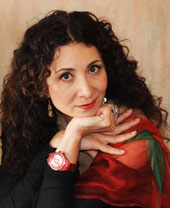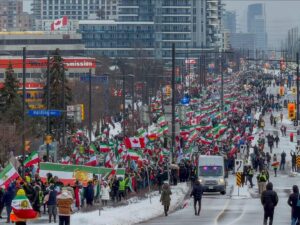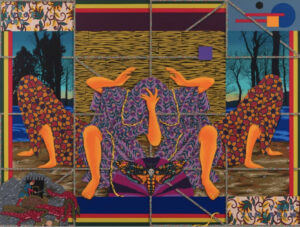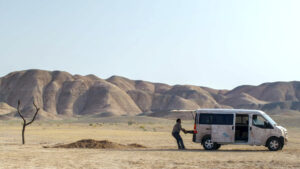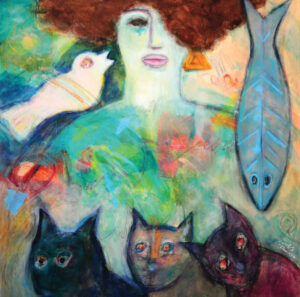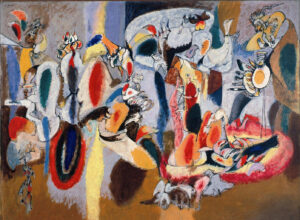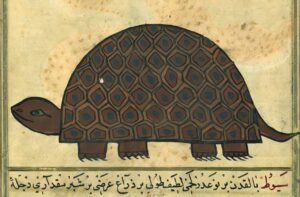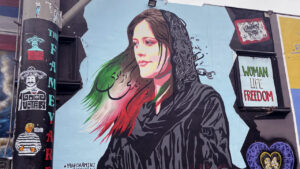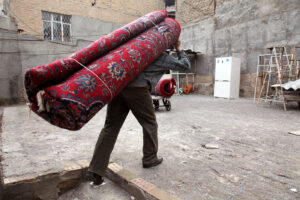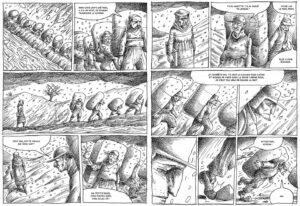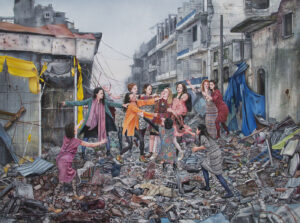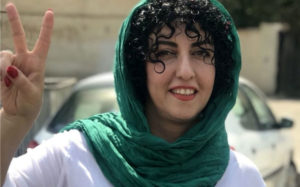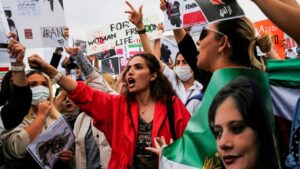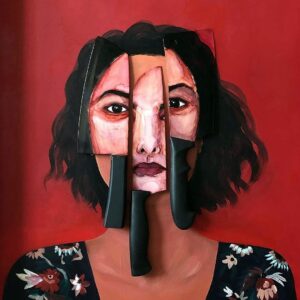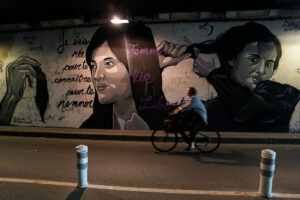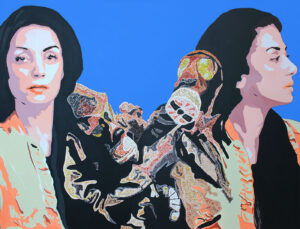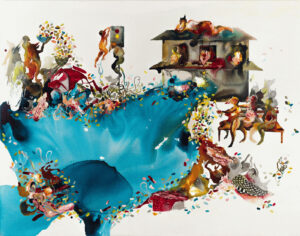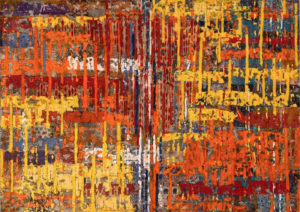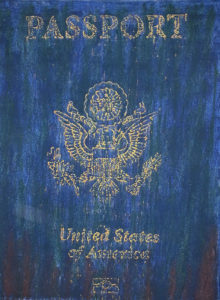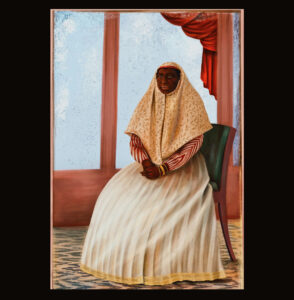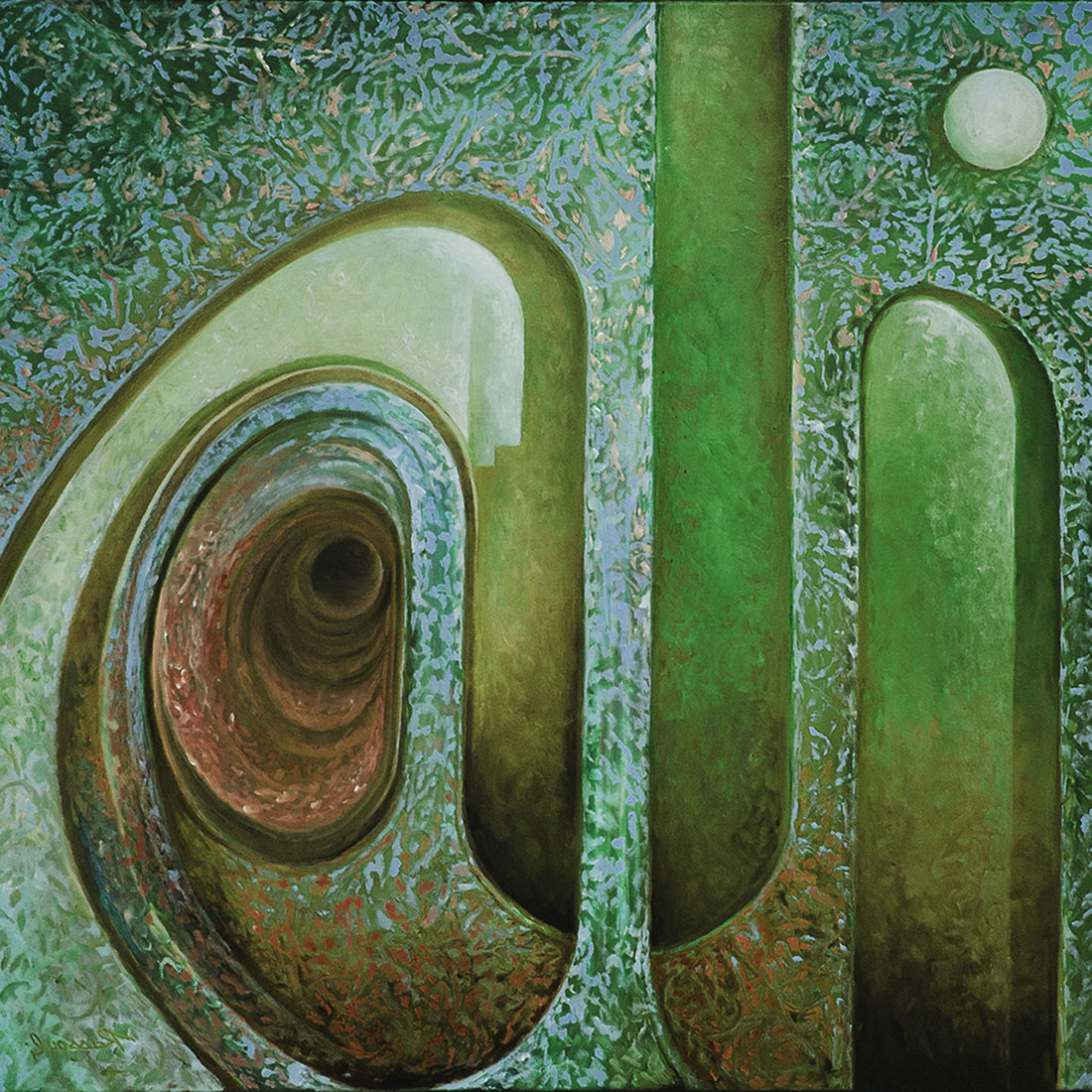
Essential Voices – Poetry of Iran and Its Diaspora: poems from Reza Baraheni, Persis Karim, Garous Abdolmalekian, Fereshteh Sari and Sohrab Sepehri, selected by Sholeh Wolpé.
Introduction by Kaveh Bassiri
The 20th century had a transformative effect on Iranian poetry. The media for the dissemination of poems expanded and evolved from newspapers and journals to the Internet and social media. Iranian authors and readers found themselves in conversation with Western and socialist thought and literature. The population of literate readers grew exponentially, as did the number of poets and poetry books. On the other hand, poetry was no longer the primary medium of art in Iran as it had been for centuries. Prose and film are now dominant popular arts. Censorship, which was a new paradigm for authors in the Pahlavi era, became even more institutionalized and extensive under the Islamic Republic.
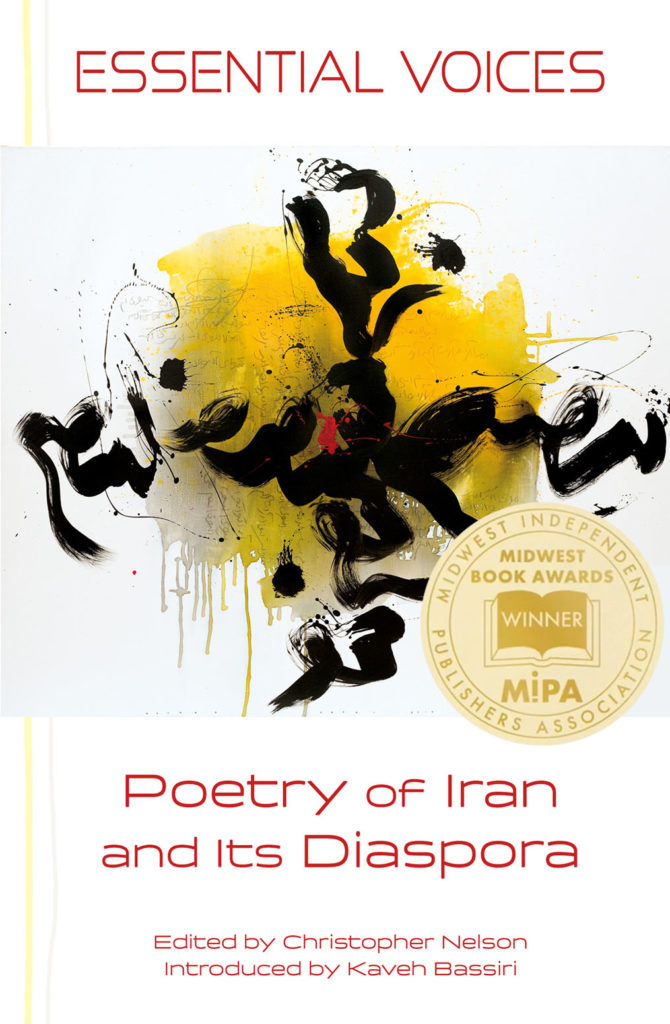
Throughout the century, questions of the poets’ political role in society and the form of poetry for the modern age continue to be subjects of debate. Many poets engaged in political or social causes, though not necessarily with the same level of persuasion and conviction. Most tried to balance their artistic concerns and sociopolitical exigency. Early in the 1900s, many poets left the court and royal patronage behind, becoming part of the public discourse. The repressive times that followed made them resort to a symbolic language in order to quote their various political or social messages. In the years before Iran’s 1979 revolution, committed poetry turned into a more radical guerrilla poetry. It marginalized other voices, accusing the non-committed of state-serving, self-indulgence, and blindness, to the society around them. Then the Islamic Republic took over the discourse of committed poetry, making a political and experimental poetry a kind of resistance. The long war with Iraq resulted in new games of war literature, sacred defense and anti-war poetry. Of course, all long, there were always poets who saw poetry as something personal and universal, not in the service of political causes.
Writers also transformed what Iranian poetry looked and sounded like. They continue to debate whether modernity is evolutionary, advancing existing forms, or revolutionary, requiring something radically new. Those who wanted to use classical prosody saw it as a way of maintaining one’s heritage, while others wanted to be free of prosodic rules and envisioned a poetry that would better reflect the changing modern world. A new poetry began with Nima and a number of early modernists. By the 1960s free-verse and experimental poetry had become an accepted part of the Iranian poetry world. Classical forms like the ghazal went through many transformations from the modern ghazals of Behbahani to the postmodern ghazals of the recent decades.
The past decade of Iran’s history has been an acceleration of sociopolitical force on the cultural production of poetry, including the Rouhani presidency (2013 – 2021), negotiations with European powers on a nuclear deal and the hope for better economic conditions, the 2018 reinstatement of sanctions by U.S. President Donald Trump, nationwide protests in 2019, the ravages of Covid-19 pandemic, and most recently a highly curated election with a new president, Ebrahim Raisi. The general poetry scene, however, remains rather similar to the previous decade. Many poets continue to publish. With access to social media, the exchange between poets in Iran and outside has increased. New poets, having learned from earlier generations, are extending the poetic discourse while writing new works that address their time. No doubt, there will be more poetry and innovations that require further study.
Reza Baraheni
Metamorphoses
it takes only three hours to change a man
the delicate bloom of a student
whose eyes shone with joy
becomes a club
starved prostrate cur
Azudi’s these red eye laughs Azud’s red eye
His teeth are so yellow
as if he had drunk a whole bowl of shit
the student’s hands tremble I had
told him, you will come back
prostrate, you will come back prostrate
I’ve done nothing, he had said, they won’t torture me
on his knees, on his toes, on his
elbows, he comes, prostrate It takes him
half an hour from the ward door to the cell
I told him so I told him
the guard says, whoever eats melon
should know about its slippery skin
when the door has opened and shut, the prisoner
whispers, I haven’t confessed yet, I
haven’t confessed
Azudi’s red eye laughs Azudi’s red eye
his teeth are so yellow
it takes only 3 hours to change a man
Reza Baraheni is one of the leading lights of the modernist movement in Iran. His work as a poet, novelist, and essayist might be said to map major trends within that movement. Imprisoned and tortured under the Shah, he found that he also had to seek exile from Iran after the Islamic revolution, settling eventually in Canada where he was strongly involved with Penn international.
Persis Karim
The Two Maryams
January 2021
Sometimes we talk. Mostly we don’t.
The weight of our different lives
wears like a shadow over us.
The sanctions are killing us
she wrote me once last year.
We send messages over What’sApp
that say something more. A photograph
of a bird or the pomegranate I cut in half,
her cat Mishoo, or my dog Maya.
These days we speak about rulers and regimes
without saying the words. She knows
I know this too. Or at least I get it.
When the pandemic erupted, we spoke
more often. We stay inside. I only see my
husband and mother she writes when Iran
is second or third in the world in cases and deaths.
Last week, she sent a message in lower
case letters: i am sorry for your country.
We met once in Paris when she tried to get a visa
To visit our sick and elderly Uncle Masude
Here in California. I jumped on a plane to France
and spent a week roaming the city with her
before the appointment at the embassy.
She loved the cellist in the subway
and the women smoking in cafes.
Iran is full of darkness she said.
I did not know if she meant her country or the prison
cell where she spent her youth after the
Revolution. I was too afraid to ask.
We drank wine and coffee and found
our fathers’ childhood home where
they lived during the First World War
and hid in the basement from the bombs.
Our Baba-Bozorg had set up a Persian
textile business in the 16th arrondissement
before the war forced them to return to Iran.
She never got the visa. Even with her American-born
cousin standing beside her at the counter.
They didn’t deny her, exactly. They didn’t
even look at her papers. The woman
behind the glass separation said you people
when I asked for an explanation.
That was 1993. Before 9/11, before “the Axis of Evil,”
before the Iran Nuclear Deal. Before the Muslim Ban.
Before our fathers died.
We are both named after our grandmother, Maryam,
whom I never had the chance to meet. We are close
but far away. Cousins in two continents, dancing
on the tightrope of a history that pushes
forever at the seams of our lives.
Persis Karim is a poet, editor and professor of comparative and world literature in San Francisco State University, where she also serves at the as the director for the Center for Iranian Diaspora Studies. She is the editor of three anthologies of Iranian diaspora literature.
Garous Abdolmalekian
Translated from Persian by Ahmad Nadalizadeh and Idra Novey
Poem for Stillness
He stirs his tea with a gun barrel
He solves the puzzle with a gun barrel
He scratches his thoughts with a gun barrel
And sometimes
he sits facing himself
and pulls bullet-memories
out of his brain
He’s fought in many wars
but he’s no match for his own despair
These white pills
have left him so colorless
his shadow must stand up
to fetch him water
We ought to accept
that no soldier
has ever returned
from war
alive
Garous Abdolmalekian is the author of six poetry collections including Lean Against This Late Hour. He serves as the editor of the poetry section in Cheshmeh Publications in Tehran.
Idrah Novey is a poet and novelist. She has translated a number of authors from Spanish and Portuguese. She teaches fiction at Princeton University.
Ahmad Nadalizadeh is a doctoral candidate in comparative literature at the University of Oregon.
Fereshteh Sari
Translated from Persian by Parisa Saranj
Of the house the roof remained
like an umbrella
spread without purpose
over a column of memories.
Of the dragonfly
her antennas remained,
searching for a sound.
A whirlwind of dust and smoke
was on the loose like
the genie from the narrow bottle.
Driftwood on the restless waters
could have been a child’s boat,
and the flying papers,
a blanket covering her light sleep.
The onlooker
did not find a name on the bulletin board.
Fereshteh Sari is a writer, editor and Russian translator living in Tehran. She is the author of eight books of poetry, six novels, and several children’s and young adult books.
Parisa Saranj was born in Esfahan, Iran. She works as a freelance translator and is currently completing a memoir of growing up in Iran in the 1990s. She lives in Baltimore, Maryland.
Sohrab Sepehri
Translated from Persian by Kazim Ali and Mohammad Jafar Mahallati
The Sound of an Encounter
Basket in hand I went to the market Square.
Early morning and the fruits are singing in the sun.
Spread out in banks, life dreams of eternal light the shining
perfection of rinds.
The orchard’s long hours of worry glittered in the shadow of each fruit.
Some unknown thing shown among the quinces.
The pomegranates spread their dark red across the country of the pious.
Any thoughts I had about the people around me vanished
before the gleaming ripeness of oranges.
When I returned home my mother asked, “Where is the fruit?”
“How can this one little basket hold Infinity?” I asked
“But I asked you to bring three kilos of good pomegranate!”
“I tried, but the basket could not hold the immensity of even a single one.”
“And the quinces?” she demanded. “What about our lunch?”
Oh at noon the image of a quince reflected back from the mirrors
and stretched from now all the way to the end of time…
Sohrab Sepehri ( 1928-1980) is among the most loved and influential Iranian poets. There are over 40 books written about him and his work. A painter and woodworker, his poetry is suffused with lyrical abstractions and philosophy influenced by his travels around the world. Well versed in Buddhism and mysticism, he blended Eastern concepts with Western techniques, creating a poetry unique in the history of Persian literature.
Kazim Ali Is the author of multiple books of poetry essay fiction translation and cross genre work. He is a professor in the department of literature at the University of California, San Diego.
Mohammad Jafar Mahallati Is a Presidential Scholar of Religion at Oberlin College.




